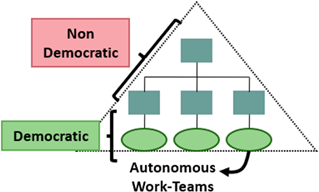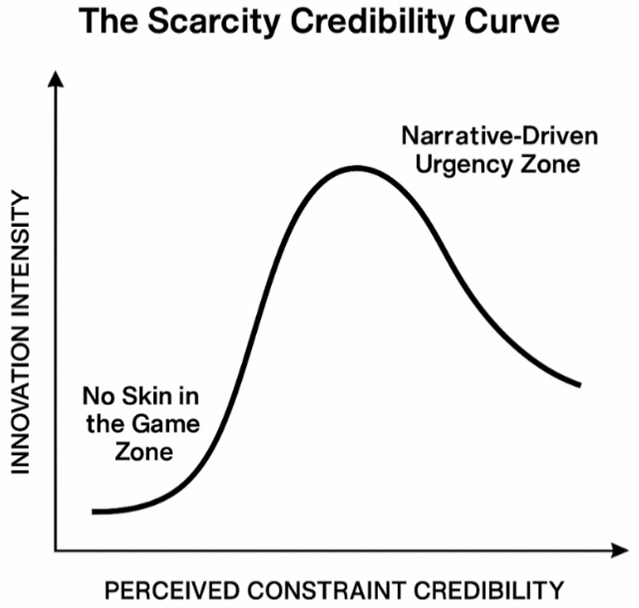
Asia Pacific Academy of Science Pte. Ltd. (APACSCI) specializes in international journal publishing. APACSCI adopts the open access publishing model and provides an important communication bridge for academic groups whose interest fields include engineering, technology, medicine, computer, mathematics, agriculture and forestry, and environment.


Navigating the digital marketing wave: Strategies and approaches for Cyprus’s boutique hotels
Vol 1, Issue 1, 2024
Download PDF
Abstract
In the modern hospitality industry, particularly within the scenic context of Cyprus, digital marketing strategies have become indispensable for achieving competitive success. Cyprus, renowned for its rich cultural heritage and breathtaking landscapes, offers boutique hotels a distinct opportunity to differentiate themselves in a crowded market. As consumers increasingly turn to digital platforms for information and bookings, the effective utilization of digital marketing by these establishments is crucial. The industry’s growing reliance on technology to attract new clients necessitates a strategic approach that not only engages potential customers but also establishes a robust digital brand presence. This study employs a mixed-methods approach, integrating qualitative interviews [n = 12] with hotel managers and digital marketing professionals alongside quantitative surveys [n = 158] to hotel guests. The aim is to examine the implementation of digital marketing strategies within Cyprus’s boutique hotel sector and evaluate their impact on critical business outcomes, including customer engagement, brand visibility, and overall performance. The research reveals significant regional variations in the adoption and effectiveness of digital marketing strategies among boutique hotels in Cyprus. In tourist hotspots, advanced digital strategies have successfully enhanced brand visibility and increased direct bookings, particularly among younger, tech-savvy customers. Conversely, hotels catering to business customers face challenges in achieving similar digital engagement, often relying on traditional online travel agencies. The study highlights the importance of integrating digital marketing with national branding initiatives and addressing challenges such as regional geopolitical tensions and varying levels of digital literacy. To fully capitalize on digital marketing opportunities, Cypriot boutique hotels should invest in digital training to amplify their reach and increase bookings. An integrated approach that combines social media, and search engine optimization is recommended to maximize online presence, sustainability, and profitability. This comprehensive strategy will enable boutique hotels to navigate the complexities of the digital landscape effectively and achieve growth.
Keywords
References
1. Bhandari R, A Sin MV. Optimizing Digital Marketing in Hospitality Industries. Startupreneur Bisnis Digital. 2023; 2(1).
2. Lee W, Chhabra D. Heritage hotels and historic lodging: Perspectives on experiential marketing and sustainable culture. Journal of Heritage Tourism. 2015; 10(2): 103–110. doi: 10.1080/1743873X.2015.1051211
3. Takuatung SN, Bussracumpakorn C. Boutique Hotel Service Digitalization: A Business Owner Study. Journal of Architectural/Planning Research and Studies. 2024; 21(1): 167–184. doi: 10.56261/jars.v21.256845
4. Sakas DP, Reklitis DP, Terzi MC, et al. Multichannel Digital Marketing Optimizations through Big Data Analytics in the Tourism and Hospitality Industry. Journal of Theoretical and Applied Electronic Commerce Research. 2022; 17(4): 1383–1408. doi: 10.3390/jtaer17040070
5. Setiawan A, Harahap Z, Syamsuar D, et al. The Optimization of Website Visibility and Traffic by Implementing Search Engine Optimization (SEO) in Palembang Polytechnic of Tourism. Available online: http://poltekpar-palembang.ac.id/ (accessed on 12 June 2022).
6. Gomez-Suarez M, Veloso M. Enhancing social media engagement by the hospitality industry: The power of customer experience dimensions. Journal of Vacation Marketing. 2022; 30(2): 311–326. doi: 10.1177/13567667221135195
7. Fatima Z, Rajan P, Banu B, et al. Study of Digital Marketing in Tourism and Hospitality Industry: A Literature Search Using the Keyword Co-Occurrence Mapping Network. Scholars Bulletin. 2024; 10(1) 16–25. doi: 10.36348/sb.2024.v10i01.003
8. Ho J, Pang C, Choy C. Content marketing capability building: A conceptual framework. Journal of Research in Interactive Marketing. 2020; 14(1): 133–151. doi: 10.1108/JRIM-06-2018-0082
9. Bortoluzzi DA, Lunkes RJ, dos Santos EA, et al. Effect of online hotel reviews on the relationship between defender and prospector strategies and management controls. International Journal of Contemporary Hospitality Management. 2020; 32(12): 3721–3745. doi: 10.1108/IJCHM-04-2020-0297
10. Deb SK, Nafi SM, Valeri M. Promoting tourism business through digital marketing in the new normal era: A sustainable approach. European Journal of Innovation Management. 2024; 27(3): 775–799. doi: 10.1108/EJIM-04-2022-0218
11. Ur-Rehman K, Adnan M, Ahmad N, et al. Impact of substantive staging and communicative staging of sustainable servicescape on behavioral intentions of hotel customers through overall perceived image: A case of boutique hotels. Int J Environ Res Public Health. 2021; 18(17). doi: 10.3390/ijerph18179123
12. Palenčarová M, Hohoš T, Correia R, et al. Social Media Marketing Research at the Hotel Industry in Slovakia. In: Proceedings of the 17th Iberian Conference on Information Systems and Technologies (CISTI); 22–25 June 2022; Madrid, Spain. pp. 1–7. doi: 10.23919/CISTI54924.2022.9820127
13. Jan A, Khan M, Ajmal MM, et al. From traditional advertising to digital marketing: Exploring electronic word of mouth through a theoretical lens in the hospitality and tourism industry. Global Knowledge, Memory and Communication. 2023. doi: 10.1108/GKMC-08-2022-0199
14. Silva C, Silva S, Rodrigues A. Instagram as a Digital Marketing Tool of a Hotel Brand. Proceedings of the 7th International Conference on Tourism Research. 2024; 7(1).
15. Kitsios F, Kamariotou, Karanikolas P, et al. Digital marketing platforms and customer satisfaction: Identifying ewom using big data and text mining. Applied Sciences (Switzerland). 2021; 11(17). doi: 10.3390/app11178032
16. Manyanga W, Kanyepe J, Chikazhe L, et al. The effect of social media marketing on brand loyalty in the hospitality industry in Zimbabwe: The moderating role of age. Cogent Business & Management. 2024; 11(1): 2302311. doi: 10.1080/23311975.2024.2302311
17. George R. Marketing Tourism Destinations in Marketing Tourism and Hospitality: Concepts and Cases. Springer International Publishing; 2021. pp. 447–484. doi: 10.1007/978-3-030-64111-5_14
18. Manousakis V, Mattas A. Statistical Analysis on the Impact of Online Travel Agents (OTAs), Commission Structure on Hotels’ Revenue Management in Sustainable Food Chains and Ecosystems: Cooperative Approaches for a Changing World. Springer International Publishing; 2020. pp. 63–77. doi: 10.1007/978-3-030-39609-1_5
19. Novera CN, Ahmed Z, Kushol R, et al. Internet of Things (IoT) in smart tourism: A literature review. Spanish Journal of Marketing—ESIC. 2022; 26(3): 325–344. doi: 10.1108/SJME-03-2022-0035
20. Mariani M, Baggio R. Big data and analytics in hospitality and tourism: A systematic literature review. International Journal of Contemporary Hospitality Management. 2022; 34(1): 231–278. doi: 10.1108/IJCHM-03-2021-0301
21. Luo JM, Vu HQ, Li G, et al. Understanding service attributes of robot hotels: A sentiment analysis of customer online reviews. Int J Hosp Manag. 2021; 98: 103032. doi: 10.1016/j.ijhm.2021.103032
22. Buhalis D, Efthymiou L, Uzunboylu N, et al. Charting the progress of technology adoption in tourism and hospitality in the era of industry 4.0. EuroMed Journal of Business. 2024; 19(1): 1–20. doi: 10.1108/EMJB-11-2023-0310
23. Singh P, Chaudhary K, Jain RU. Ecoplore: Launching a new digital trip. Emerald Emerging Markets Case Studies. 2023; 13(3): 1–23. doi: 10.1108/EEMCS-12-2022-0450
24. Arici HE, Saydam MB, Koseoglu MA. How Do Customers React to Technology in the Hospitality and Tourism Industry? Journal of Hospitality & Tourism Research. 2023; 48(6): 1081–1096. doi: 10.1177/10963480231168609
25. Seyfi S, Vo-Thanh T, Zaman M. Hospitality in the age of Gen Z: A critical reflection on evolving customer and workforce expectations. International Journal of Contemporary Hospitality Management. 2024; 36(13): 118–134. doi: 10.1108/IJCHM-01-2024-0035
26. Nicoli N, Henriksen K, Komodromos M, et al. Investigating digital storytelling for the creation of positively engaging digital content. EuroMed Journal of Business. 2022; 17(2): 157–173. doi: 10.1108/EMJB-03-2021-0036
27. Viglia G, Dolnicar S. A review of experiments in tourism and hospitality. Ann Tour Res. 80: 102858. doi: 10.1016/j.annals.2020.102858
28. Kokkhangplu A, Auemsuvarn P. Understanding customer experiences insights in boutique hotels: A case study from Thailand. Cogent Business & Management. 2024; 11(1): 2413397. doi: 10.1080/23311975.2024.2413397
29. Nikopoulou M, Kourouthanassis P, Chasapi G, et al. Determinants of Digital Transformation in the Hospitality Industry: Technological, Organizational, and Environmental Drivers. Sustainability (Switzerland). 2023; 15(3). doi: 10.3390/su15032736
30. Alreahi M, Bujdosó Z, Dávid LD, et al. Green Supply Chain Management in Hotel Industry: A Systematic Review. Sustainability, MDPI. 2023. doi: 10.3390/su15075622
31. Marneros S, Papageorgiou G, Efstathiades A. Examining the core competencies for success in the hotel industry: The case of Cyprus. J Hosp Leis Sport Tour Educ. 2021; 28: 100303. doi: https://doi.org/10.1016/j.jhlste.2021.100303
32. Papageorgiou G, Marneros S, Efstathiades A. Social Media as a Digital Communications Strategy; the Case of Hotel Enterprises in Cyprus. In: Proceedings of the 2020 IEEE Communication Strategies in Digital Society Seminar (ComSDS); 08-08 April 2020; St. Petersburg, Russia. pp. 118–121. doi: 10.1109/ComSDS49898.2020.9101261
33. Komodromos M, Abadir S, Alserhan BA, et al. Applied strategic management by managers in the hotel and tourism industry in Cyprus and Greece during the COVID-19 pandemic. Journal for International Business and Entrepreneurship Development. 2022; 14(3): 378–399. doi: 10.1504/JIBED.2022.126948
34. Anastasiou M. Reflecting on Teaching and Ecovid-19: An Aggressive Digital Teaching Transformation Outbreak in Higher Hospitality Education in Cyprus. International Journal of Tourism and Hospitality Management. 2020; 3(2): 344–370. doi: 10.21608/ijthm.2020.134273
35. Katemliadis I, Markatos G. Stakeholders’ involvement in sustainability planning and implementation: The case of Cyprus. Worldwide Hospitality and Tourism Themes. 2021; 13(6): 709–718. doi: 10.1108/WHATT-07-2021-0095
36. Truong D, Liu RX, Yu J. Mixed methods research in tourism and hospitality journals. International Journal of Contemporary Hospitality Management. 2020; 32(4): 1563–1579. doi: 10.1108/IJCHM-03-2019-0286
37. Azer J, Taheri B, Gannon M. A Critical View on Mixed-Method Approaches to Tourism and Hospitality Research in Advanced Research Methods in Hospitality and Tourism. Emerald Publishing Limited; 2022. pp. 5–24. doi: 10.1108/978-1-80117-550-020221002
38. Dwivedi YK, Ismagilova E, Hughes DL, et al. Setting the future of digital and social media marketing research: Perspectives and research propositions. Int J Inf Manage. 2021; 59: 102168. doi: 10.1016/j.ijinfomgt.2020.102168
Supporting Agencies
Copyright (c) 2024 Author(s)
License URL: https://creativecommons.org/licenses/by/4.0/

This site is licensed under a Creative Commons Attribution 4.0 International License (CC BY 4.0).

Macau University of Science and Technology, Macau




.jpg)
.jpg)
